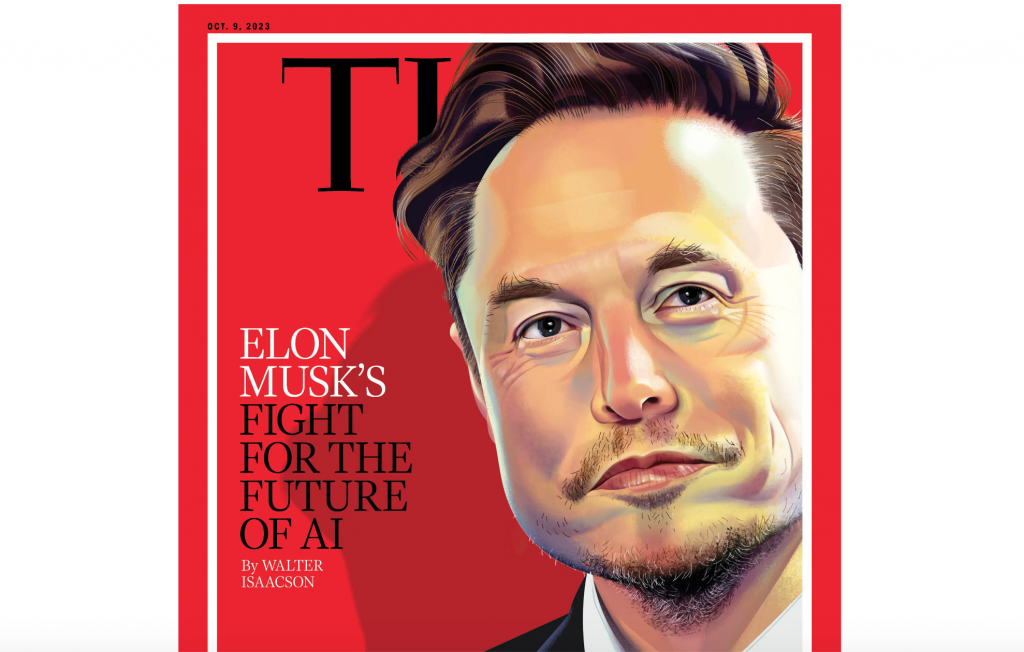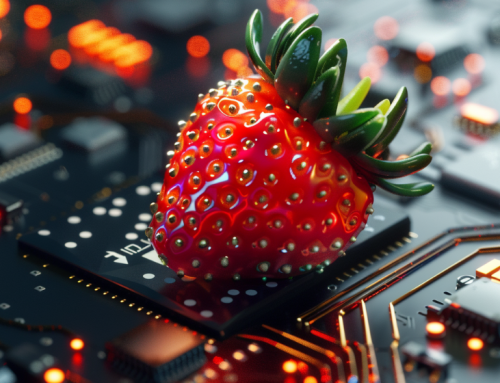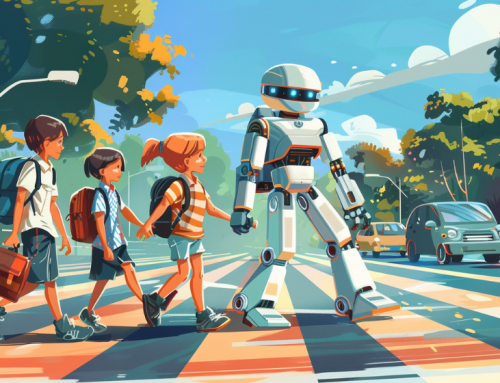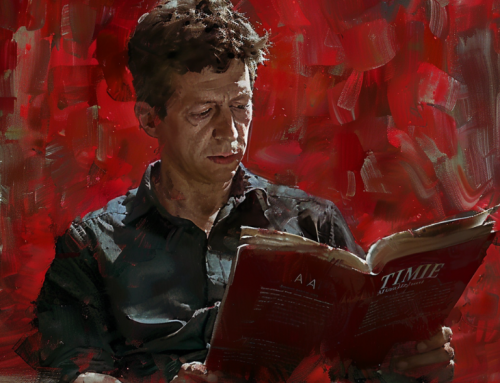
Walter Isaacson followed Elon Musk for two years, gathering information for his revealing eponymous book, which is excerpted in time.com. (Source: time.com)
Isaacson’s Biography of Elon Musk Reveals How Billionaire Became Obsessed with AI
Time.com excerpted what will likely be one of the biggest books of 2023, written by author Walter Isaacson, ‘Elon Musk.’ The object of the biography can be best described as amazing, fascinating, and frustrating. Musk lives a very different lifestyle from the average person who will read this book.
This is Isaacson’s first biography of a tech titan since his comprehensive take on Steve Jobs. He’s on a media tour in which he’s talking about the mountain of information he compiled in interviews and through research.
His Background Created Him
Originally from South Africa, Musk was influenced by his wealthy father, who also heaped abuse on him. The constant berating of Musk caused him to try harder to succeed. Which he did, in spades.
According to the book, Musk has many worries keeping him up at night, including controlling AI. Another is the declining birthrate around the world. He wants more people to have kids, especially smart people.
Musk has had a record of competing with others over various tech products or advancements. If he loses the battle for the product he wants, he simply takes his money and creates a brand new product to compete with the one he wanted originally.
From Elon Musk came SpaceX, Tesla, The Boring Corporation, PayPal, OpenAI and now X, the former Twitter. Issacson gets Musk to share an enormous amount of personal insights into his life.
Musk Lost DeepMind
The time.com story excerpt begins with Musk’s effort to control the AI called DeepMind, and his loss of the project to Google.
“At a conference in 2012, Elon Musk met Demis Hassabis, the video game designer and AI researcher who had co-founded a company named DeepMind that sought to design computers that could learn how to think like humans.
“Elon and I hit it off right away, and I went to visit him at his rocket factory,” Hassabis says. While sitting in the canteen overlooking the assembly lines, Musk explained that his reason for building rockets that could go to Mars was that it might be a way to preserve human consciousness in the event of a world war, asteroid strike, or civilization collapse. Hassabis told him to add another potential threat to the list: artificial intelligence. Machines could become superintelligent and surpass us mere mortals, perhaps even decide to dispose of us.
“Musk paused silently for almost a minute as he processed this possibility. He decided that Hassabis might be right about the danger of AI, and promptly invested $5 million in DeepMind as a way to monitor what it was doing.”
At the end of 2013, Musk learned Larry Page of Google was planning to buy DeepMind. He and his friend Luke Nosek tried to put together financing to stop the deal. The effort failed, and Google’s acquisition of DeepMind was announced in January 2014.
OpenAI Comes on Board
Musk then turned to Sam Altman, a tightly bundled software entrepreneur, sports car enthusiast, and survivalist who, behind his polished veneer, had a Musk-like intensity. At a small dinner in Palo Alto, they decided to co-found a nonprofit artificial intelligence research lab, which they named OpenAI. It would make its software open-source and try to counter Google’s growing dominance of the field.
“We wanted to have something like a Linux version of AI that was not controlled by any one person or corporation,” Musk says.
It is a little odd to hear that from Musk. He is the boss of all of his companies in a very singular way, according to reports.
Another excerpt involving a conversation with Page on AI shows exactly what motivated Musk to be proactive about controlling it. He and Page disagreed on whether AI’s potential ability to surpass human intelligence would be a good or bad evolution. Page said that it would be a natural evolution
“Human consciousness, Musk retorted, was a precious flicker of light in the universe, and we should not let it be extinguished. Page considered that sentimental nonsense. If consciousness could be replicated in a machine, why would that not be just as valuable? He accused Musk of being a ‘specist,’ someone who was biased in favor of their own species. ‘Well, yes, I am pro-human,’ Musk responded. ‘I f-cking like humanity, dude.’
The article and the book are great reads, chockfull of information. We highly recommend you click the link below and look a little deeper into Elon Musk, possibly the richest man that has ever lived.
read more at time.com







Leave A Comment